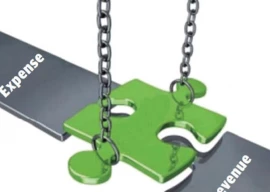
The government’s newly-imposed tax on internet usage is no different; it is aimed to restrict the diffusion of internet technologies in general and that of third generation or fourth generation (3G/4G) services in particular.
So the question of the hour is: what strategy should cellular operators opt to boost mobile internet adoption rate despite the ‘deadweight’ loss of internet tax? And more importantly, do they really need one?
Yes, they do. With industry boundaries dismantling and market dynamics changing quickly, cellular operators need to go back to the drawing board and have a hard look at their business strategy. As the regulatory environment is itself a considerable risk and there is little hope that the government would consider reducing tax bills, it is inevitable that this slow diminution of tariff and a stagnation of revenue growth might lead to a merger and acquisition deal in this sector, lest telcos come up with a new strategy to generate further demand.
Read: Towershare deal will spur growth in telecom sector
Closer look at practices
A detailed analysis reveals that the telecom sector has already witnessed major changes in its core business model as telcos have competed for revenue growth through service diversification. In achieving differentiation, they have not only offered more attractive data packages, but have also gone into extensive partnerships with social media powerhouses such as Facebook.
These partnerships have resulted in product cannibalisation, as their revenues from messaging services and even voice are on a constant decline with more and more users shifting to Whatsapp and its like. Moreover, internet users at home and work are connected to high-speed Wi-Fi access points and have little need to rely upon these mobile telcos.
This presents a classic case of Clay’s disruptive innovation, where operators are threatened by non-traditional players such as social media apps and Wi-Fi hotspots. Due to cut-throat competition, changing markets and stagnation of subscriber growth, telcos are not only faced with the problems of increased capital expenditures on infrastructure but also that of declining revenues per user.
Drawing parallels
Leading corporations in the world are nowadays harnessing the power of ‘collaborative consumption’ - a business model which is about reinventing the way we consume through various collaborative paradigms.
Australian telco Yatango Mobile is allowing customers to call their Facebook friends at a ‘throw-away’ call rates and also offering a $5 credit for referrals. So Yatango is tapping into a new trend known for partnering with big players to offer a better mobile experience. This results in a behavioural lock-in and helps retaining customers.
But in Pakistan, the average data customer is not conditioned to pay for the internet in terms of volume usage and they perceive that the present pricing plans are unfair and overcharged. In fact, consumer behaviour is a critical success factor which calls for a better pricing strategy to ensure high 3G/4G adoption rate.
Read: Officials target massive telecom growth
A word of advice
This behaviour is a predictor that both collaborative consumption models and freemium models are bound to fail in the context of Pakistan. WhatsApp, Facebook and Skype will become a nightmare for these telcos and they will lose millions in potential revenue from voice and text plans due to the ‘cobra effect’ of promoting mobile data services.
Getting potential users pushed into using premium data plans by offering a few free services might work; but only in the short-run. Many telcos do not fully understand the emerging market dynamics coupled with the changing consumer behaviour, resulting in poor customer segmentation and targeting.
The present offerings of daily or weekly data bundles and free Whatsapp/Facebook services will quickly erode their revenues even further in the long run. Telcos should develop sustainable business advantage by introducing new value propositions.
The key here is to offer more sophisticated data pricing plans with a strategic focus on the consumer behaviour and a clever segmentation based on behavioural economics.
The writer is a Cambridge graduate and is working as a management consultant
Published in The Express Tribune, August 31st, 2015.
Like Business on Facebook, follow @TribuneBiz on Twitter to stay informed and join in the conversation.
1734776708-0/Untitled-(8)1734776708-0-405x300.webp)
1734773637-0/Untitled-(7)1734773637-0-165x106.webp)
1734772637-0/Untitled-(6)1734772637-0-165x106.webp)
1734769757-0/Untitled-(4)1734769757-0-165x106.webp)
1734765764-0/Untitled-(3)1734765764-0-165x106.webp)










1734587529-0/Express-Tribune-(1)1734587529-0-270x192.webp)
1734606611-0/Express-Tribune-(8)1734606611-0-270x192.webp)






COMMENTS (5)
Comments are moderated and generally will be posted if they are on-topic and not abusive.
For more information, please see our Comments FAQ